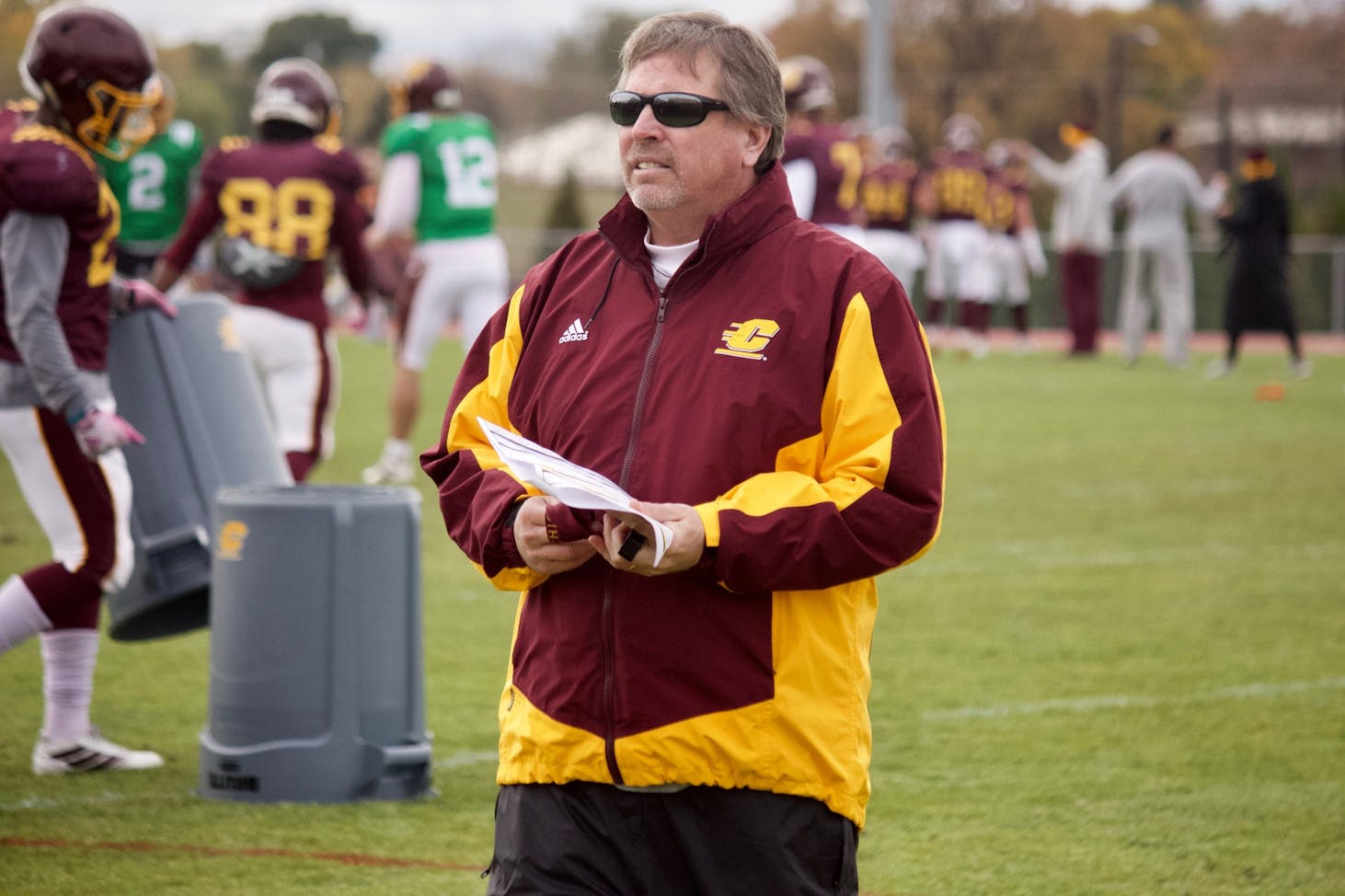CMU's Michael Alford, Jim McElwain support NCAA allowing players to be paid for name, image, likeness

Michael Alford paces the sideline before Central Michigan takes on Wisconsin Sept. 7 at Camp Randall in Madison, Wisconsin.
The NCAA's process of allowing student-athletes to financially benefit from the use of their names, images and likenesses has begun.
The top governing board voted "unanimously to permit students participating in athletics the opportunity to benefit from the use of their name, image and likeness in a manner consistent with the collegiate model," according to an Oct. 29 press release from the NCAA.
Central Michigan Athletic Director Michael Alford has voiced his support of student-athletes benefiting from the use of their name, image and likeness.
Alford hopes the NCAA makes sure to avoid consequences, specifically those that are unintentional when implementing new rules.
"I am supportive of student-athletes having the opportunity to manage their name, image and likeness but feel strongly that this must be done inside the current collegiate model," Alford said. "As leaders, it is incumbent on us to weigh all sides of the issue including unintended consequences and create a model that will move our association forward."
The Board of Governors said changes to the NCAA rules in terms of name, image and likeness could happen across all three divisions immediately – but no later than January 2021.
Those changes must occur within certain principles and guidelines:
– Assuring student-athletes are treated similarly to non-athlete students unless a compelling reason exists to differentiate.
– Maintaining the priorities of education and the collegiate experience to provide opportunities for student-athlete success.
– Ensuring rules are transparent, focused and enforceable and facilitate fair and balanced competition.
– Making clear the distinction between collegiate and professional opportunities.
– Making clear that compensation for athletics performance or participation is impermissible.
– Reaffirming that student-athletes are students first and not employees of the university.
– Enhancing principles of diversity, inclusion and gender equity.
– Protecting the recruiting environment and prohibit inducements to select, remain at, or transfer to a specific institution.
The process from the NCAA follows California Gov. Gavin Newsom signing the Fair Pay to Play Act that allows California-based student-athletes to make money based on their name, image and likenesses. The law won't become effective until January 2023.
Alford said the announcement from the NCAA was "the first step in addressing a complex matter the way it should be handled." He was speaking directly on the importance of going through the NCAA Board of Governors for a situation that allows athletes to profit off themselves.

Central Michigan football coach Jim McElwain said he wasn't sure what all goes into the NCAA's decision to "immediately consider updates to relevant bylaws and policies for the 21st century" for all three divisions.
McElwain said his only focus is on doing what's best for the student-athletes, and he will be in support of new rules.
"Obviously, I'm all about the players, so whatever can help them," McElwain said. "I know our administration and people here will work through exactly what it means. I'm not sure I know exactly all that goes into it, but we will be supportive of whatever the rules are."
The first-year Central Michigan coach spent time at Colorado State (2012-14) and Florida (2015-17) as the head coach at each stop before joining the Chippewas.
Alford is in his third year as Central Michigan's athletic director.
He arrived in July 2017 and previously worked in fundraising and marketing at the University of Oklahoma, Dallas Cowboys, University of Alabama, ESPN, University of Southern California, Cincinnati Bengals and University of Cincinnati.
Alford's biggest project to date is the Chippewa Champions Center, a $32.5 million building dedicated to the student-athlete experience. It is expected to be completed in August 2020.







